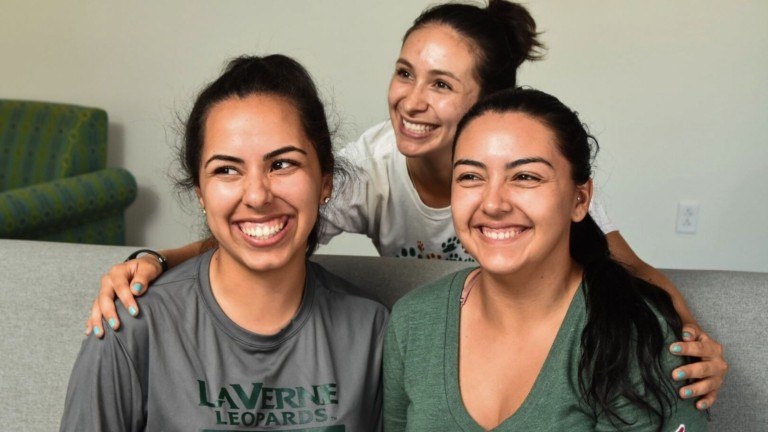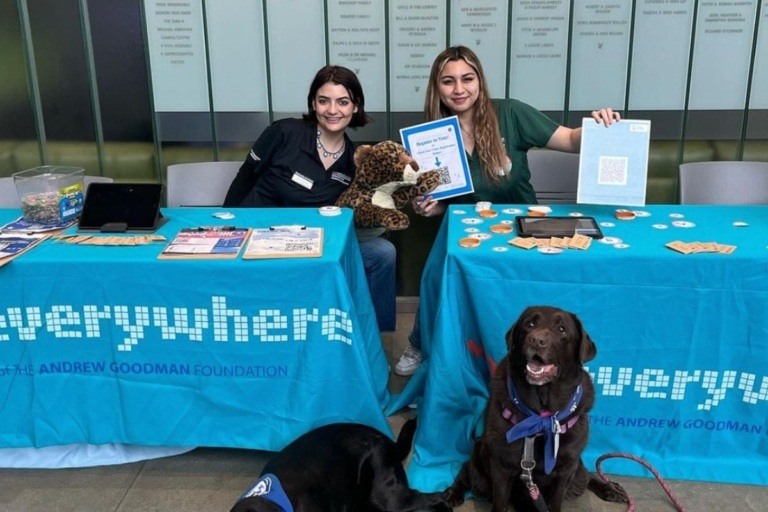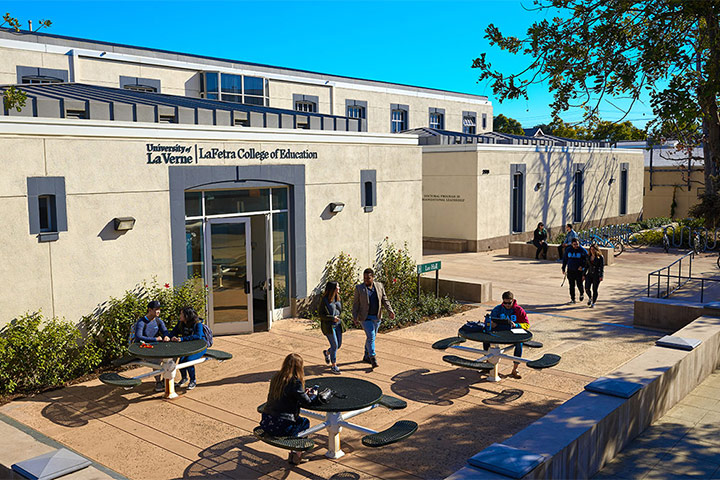New Faculty Join College of Law
The University of La Verne College of Law has added seven new tenured, tenure-track and contract faculty members to its staff. Also joining La Verne Law are two visiting faculty members. Read more about these talented professors below.
Professor Placido Gomez
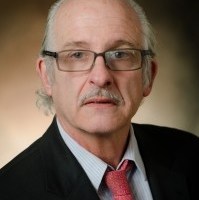 Professor Gomez served as a tenured member of the Phoenix School of Law faculty from 2008 to 2012. Previously, he was the vice president for academic affairs and provost at New Mexico Highlands University in Las Vegas, N.M. He also held tenured faculty positions at both St. Mary’s University School of Law in San Antonio and Thurgood Marshall School of Law at Texas Southern University in Houston. He regularly teaches evidence, property, and criminal procedure. Professor Gomez also teaches for the American Indian Law Center at the University of New Mexico School of Law in Albuquerque, and has served as an appellate judge on the Southwest Intertribal Court of Appeals and a Pro Tem Judge of the Yavapai-Apache Nation.
Professor Gomez served as a tenured member of the Phoenix School of Law faculty from 2008 to 2012. Previously, he was the vice president for academic affairs and provost at New Mexico Highlands University in Las Vegas, N.M. He also held tenured faculty positions at both St. Mary’s University School of Law in San Antonio and Thurgood Marshall School of Law at Texas Southern University in Houston. He regularly teaches evidence, property, and criminal procedure. Professor Gomez also teaches for the American Indian Law Center at the University of New Mexico School of Law in Albuquerque, and has served as an appellate judge on the Southwest Intertribal Court of Appeals and a Pro Tem Judge of the Yavapai-Apache Nation.
Professor Gomez is a former member of the Law School Admissions Council’s Diversity Committee. He is a past chair of the property section of the Association of American Law Schools. He has received several honors in association with his active role in the education of minority students. While at Yale, he helped establish the James Thomas Lecture Series, an annual program that brings young minority law professors to the Yale Law School campus. In April 2001, he was honored at the University of New Mexico School of Law with the Fighting for Justice Award for his commitment to the legal education of minority students and his work with indigent and under-represented groups in the criminal justice system.
Professor Michael O’Connor
Michael P. O’Connor received his Bachelor of Arts degree from Pennsylvania State University, graduating summa cum laude with membership in Phi Beta Kappa. Upon graduation, he was named an Evan Pugh Scholar, a recognition awarded only to those graduating in the top 0.5% of the graduating class. Professor O’Connor received his Juris Doctor from Yale Law School, where he served as student director of both the Jerome N. Frank Prison Legal Services and the Green Haven Prison Project. While at Yale, O’Connor co-authored a paper that was awarded the Raphael Lemkin Prize for Outstanding Work in International Human Rights. This paper was later published in book form by Beacon Press as Plowshares and Swords: the Economics of Occupation in the West Bank, Drury and Winn (Boston, 1992).
As a practicing lawyer, O’Connor represented death-sentenced prisoners across the U.S. for almost two decades. He also served as counsel for the Government of Mexico, asserting the treaty rights of Mexican nationals charged with capital offenses in the U.S. In 1993, O’Connor was a co-finalist for Trial Lawyer of the Year by the Trial Lawyers for Public Justice, for his work in the case of State of Alabama v. Walter McMillian. O’Connor and Bryan Stevenson represented Mr. McMillian and won his freedom from death row, where he had been sentenced for a crime he did not commit.
Professor O’Connor has twenty years teaching experience at various schools in the U.S. and abroad. He has taught a wide range of doctrinal and skills courses, including criminal law, criminal procedure, constitutional law, terrorism law, humanitarian law, civil rights litigation and legal writing, among others. His scholarship ranges across disciplines but focuses on the intersection of human rights, civil liberties and efforts to combat terrorism. His comparative scholarship (with co-author Celia Rumann) on efforts to combat terrorism has been cited in official U.S. and British government documents, in white papers produced by Harvard, Yale and Columbia universities, and in pleadings filed before the U.S. Supreme Court.
Professor O’Connor has presented his scholarship in Europe, Asia and Africa, in addition to the United States. At the invitation of the governments of the People’s Republic of China and the Republic of Botswana, Professor O’Connor participated in legal and educational exchanges on a variety of topics in those countries.
O’Connor and his partner, Celia Rumann, also make documentary films centering on human rights issues.
Professor Julie Manasfi
Professor Manasfi received a Juris Doctor and Master of Laws in taxation from New York University School of Law and a Bachelor of Arts in political science (with an accounting minor) from University of California Los Angeles. Her teaching interests include taxation, business associations and contracts. Prior to joining La Verne Law, Professor Manasfi taught at Loyola Law School and Whittier Law School.
Professor Manasfi was also a member of Sidley Austin LLP’s tax group in Los Angeles. She practiced in the areas of federal and state corporate, individual and partnership taxation. She provided tax advice to a number of large domestic and offshore hedge funds, private equity funds and real estate funds, including counseling them regarding formation issues and assisting them with the structuring of a wide variety of investments.
Professor Manasfi served as an associate at White & Case LLP in New York where she worked on a variety of tax, employee benefits and multi-state real estate matters. Professor Manasfi has written about the taxation of foreign hedge fund lending to U.S. borrowers and transactions in U.S. debt securities. She is currently working on federal income tax and business associations casebooks.
Assistant Professor Ezra Goldschlager
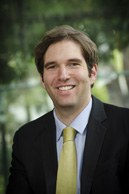 Professor Ezra Goldschlager teaches torts, criminal law, introduction to legal skills and the law review seminar. His scholarly work focuses on improving the law’s power to shape behavior. Professor Goldschlager is the faculty advisor to the University of La Verne Law Review, and founding faculty advisor to the La Verne Law chapter of the Student Animal Legal Defense Fund.
Professor Ezra Goldschlager teaches torts, criminal law, introduction to legal skills and the law review seminar. His scholarly work focuses on improving the law’s power to shape behavior. Professor Goldschlager is the faculty advisor to the University of La Verne Law Review, and founding faculty advisor to the La Verne Law chapter of the Student Animal Legal Defense Fund.
Before joining the La Verne Law faculty in 2013, Professor Goldschlager served as a law clerk to the Honorable Jerome A. Holmes of the United States Court of Appeals for the Tenth Circuit. Professor Goldschlager received his Juris Doctor from Yale Law School, where he was a student director of the Jerome N. Frank Legal Services Organization. Professor Goldschlager received his Bachelor of Arts magna cum laude in philosophy from Williams College. At Williams, he was inducted into Phi Beta Kappa and received the John W. Miller Prize for the Most Outstanding Student in Philosophy.
Assistant Professor John F. Acevedo
Professor John F. Acevedo currently teaches constitutional law. He previously taught courses on criminal law, criminal procedure, legal history, American legal systems, and the First Amendment. Before joining the faculty of the University of La Verne, he taught at Chicago-Kent College of Law, Barry University Dwayne O. Andreas School of Law, and the University of Southern California, Gould School of Law. In addition to teaching law, he also taught American history, research methods, and historiography to undergraduates at the University of Chicago.
Professor Acevedo received his Bachelor of Arts with honors in history from California State University, San Bernardino in 1999. He received his Juris Doctor from the University of Southern California, Gould School of Law where he was a fellow in the Center for Law, History, and Culture. He earned a Master of Arts in history and a Doctor of Philosophy in history from the University of Chicago. His emphasis was on legal history in colonial North America. His dissertation committee was composed of Edward M. Cook Jr. (chair), Richard H. Helmholz, and Fredrik Albritton-Jonsson and the dissertation was titled, Harsh Mercy: Criminal Law in the Seventeenth-Century Massachusetts Bay Colony.
Professor Acevedo’s research interests focus on remedies to police misconduct, the concept of dignity takings, the history of criminal procedure, law in the British Empire, and First Amendment protections for non-Abrahamic religions. He has published articles with Howard Law Journal, South Carolina Law Review, Chicago-Kent Law Review, and UMKC Law Review. He has also presented at numerous conferences and workshops.
Assistant Professor Krista Correa
Professor Krista Correa joined the faculty of the University of La Verne College of Law as a member of the Center for Academic and Bar Readiness in 2016. Prior to attending law school, Professor Correa spent almost a decade in the test preparation industry, working with students and developing materials for the Princeton Review. During those years, she worked with students of all ages on four continents. After receiving her Juris Doctor from the University of California, Berkeley, School of Law, she worked as a research attorney at Los Angeles Superior Court and as a private litigator. She has published in the areas of California civil procedure and privacy law and completed a specialization in law and technology at Berkeley. Professor Correa currently teaches the multistate bar strategies course to third-year students.
Assistant Professor Sarira Sadeghi
Professor Sadeghi joined the University of La Verne College of Law, Center for Academic and Bar Readiness, in 2016. Before joining the College of Law, Professor Sadeghi was a staff attorney at the Nevada Supreme Court. She also worked in international human rights and private litigation, and is barred in California and Nevada. Professor Sadeghi has been an educator since 2003 and currently teaches Strategic Legal Methods to second-year students. Professor Sadeghi received her Bachelor of Arts degree from the University of Northern Colorado and her Juris Doctor from American University Washington College of Law.
Visiting Professor Rhonda Reaves
Rhonda Reaves is a visiting professor of law at the University of La Verne College of Law for the 2016-17 Academic Year. Professor Reaves has been a member of the faculty at Florida Agricultural and Mechanical University College of Law since 2005. Professor Reaves is a graduate of Stanford Law School and Yale University. She teaches courses in torts, property; employment discrimination law; employment law; and professional responsibility. Her scholarship includes Retaliatory Harassment: Sex and the Hostile Coworker as the Enforcer of Workplace Norms, 2007 Mich. St. L. Rev. 403 (2007); One of These Things Is Not like the Other: Analogizing Ageism to Racism in Employment Discrimination Cases, 38 U. Rich. L. Rev. 839 (2004); “There’s No Crying in Baseball”: Sports and the Legal and Social Construction of Gender, J. Gender Race & Just. (2001).
Visiting Professor Christopher Amos
Professor Amos joined the College of Law faculty as visiting assistant professor of law this fall with teaching experience in the areas of legal analysis, research and writing for prelaw, criminal justice, political science, and media law. His research interests include Whistleblower Protection Act reforms, jury nullification, and First Amendment jurisprudence and social media. Chris will be teaching torts and introduction to legal skills. He holds a Juris Doctor from the University of Michigan Law School. Our students will undoubtedly benefit from his award-winning writing ability.
